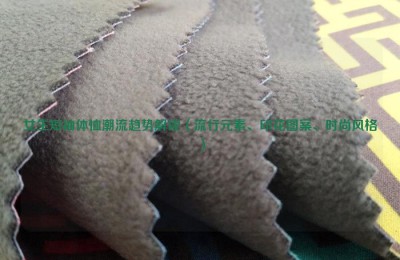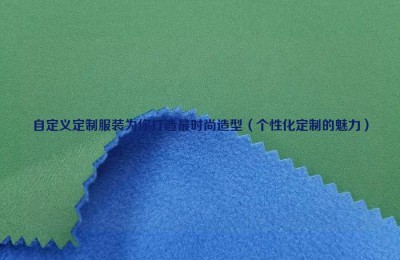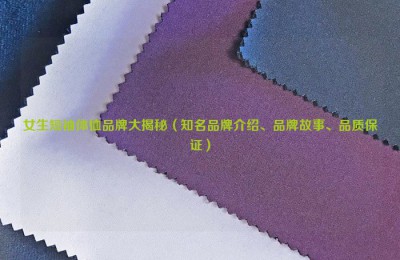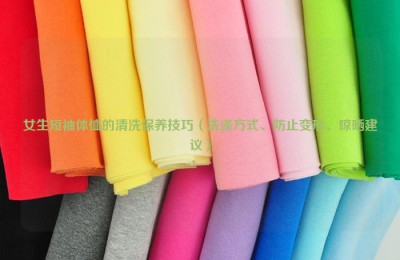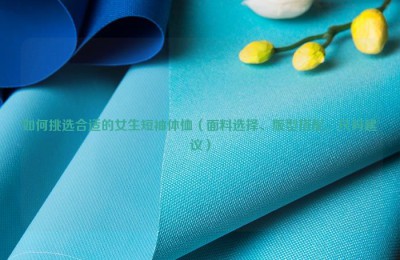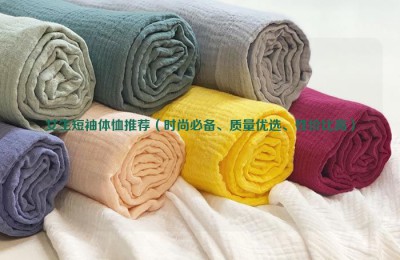At the beginning of the new year in 2022, the local level has gradually entered the “Two Sessions Time”. With the convening of the local two sessions, the economic and social development report cards of various regions in 2021 have been released one after another. In addition, from economic goals to people’s livelihood matters, how various localities plan their development blueprint for the new year is also the focus of people’s attention. At the same time, representatives of the textile and garment industry have also spoken out and provided suggestions for local “steady growth.”
Wu Li, member of the Beijing CPPCC Committee:
I hope Beijing can play the business card of “fashion”
Beijing Mayor Chen Jining proposed in the 2022 Government Work Report that we should give full play to the cultural advantages of the capital, inherit and develop the unique ancient capital culture, red culture, Beijing-style culture and innovative culture to better meet the spiritual and cultural needs of the people. .
Focusing on building Beijing into an international consumption center city, Wu Li, member of the Beijing CPPCC Committee, Secretary of the Party Committee and Chairman of Fashion Holdings, hopes that Beijing can play the business card of “fashion”.
Attending the fifth session of the 13th CPPCC National Committee, Wu Li brought a proposal suggesting that Beijing accelerate the cultivation of the capital’s fashion industry and fashion consumption ecology. Specific measures include establishing a fashion museum and professional exhibition center, and building a fashion technology laboratory. , cultivating fashion culture leading enterprises and local fashion brands, etc.
Talking about the original intention of proposing this proposal, Wu Li said that at present, Beijing needs to enhance the influence and radiation of urban fashion consumption in building an international consumption center city. It also needs new fashion technologies, new industries, new models, new business formats, The new economy provides strong support. In recent years, although Beijing’s fashion industry has developed vigorously and the scale of fashion consumption has gradually expanded, it also faces some problems. “For example, Beijing, as a representative city with high demand for fashion consumption, has insufficient contribution to urban consumption, and the attractiveness of fashion consumption needs to be improved. With the advancement of the decentralization of non-capital functions, the fashion industry lacks upstream and downstream advantageous industrial chain clusters, which restricts The city’s fashion industry is becoming bigger and stronger,” Wu Li said. In addition, the industrial connection between Beijing’s cultural resources and fashion brand consumption is still relatively weak. The traditional business district is not fashionable enough and lacks brand stores with Beijing cultural characteristics.
In response to these problems, Wu Li suggested integrating the capital’s fashion industry resources and building a fashion industry alliance and a cultural and creative alliance that is government-led, enterprise-led, market-oriented, innovation-driven, and based on the industrial chain.
In addition, Wu Li also suggested cultivating leading fashion culture enterprises, independent fashion culture brands with international influence, and professional fashion industry development platforms such as Beijing Fashion Week. “Fashion technology laboratories can be established to provide financial support for the research and development and application of key technologies in key areas such as new technologies, new materials, and new models, and to support the promotion of traditional Chinese culture as IP Fashion design with core elements, cultivate international local brands with unique characteristics. In particular, we strive to cultivate a group of fashion culture brands with Beijing cultural elements and international fashion elements, export Beijing fashion culture concepts and characteristics to domestic and foreign countries, and guide Fashion consumption is upgrading,” Wu Li said.
Dongguan CPPCC member Wu Yang:
Promote the cultural influence of Dongguan through the development of Hanfu industry
“The “14th Five-Year Plan” for the development of highquality manufacturing industries in Dongguan City” proposes that during the “14th Five-Year Plan” period, Dongguan City will promote “clusterization, The “Five Modernizations” development direction of “high-end, digital, branding and green” has been clarified, and the “4+5”industrial cluster cultivation has been clarified, focusing on the new generation of electronic information, high-end Four pillar industry clusters including equipment manufacturing, textiles, clothing, shoes and hats, and food and beverages, as well as five emerging industry clusters including software and information services, new materials, new energy, biomedicine and high-end medical equipment, semiconductors and integrated circuits, build a “hundred-year-old industrial cluster”. A cluster development echelon with a scale of , thousands, or tens of millions.
Dongguan City’s 2022 government work report also proposed to promote the quality and efficiency of the manufacturing industry and consolidate and upgrade strategic pillar industries. Support manufacturing enterprises to expand into R&D and design, customized production, supply chain management and other links. Implement the three-year action of trademarks and brands to empower high-quality economic development, and support advantageous industries such as clothing, toys, and electronic information to create national fashion brands.
On January 10, Wu Yang, member of the Dongguan CPPCC, member of the Dongguan Municipal Committee of China Democratic National Construction Association, and chairman of the Finance Branch, submitted a proposal to the conference on “Recommendations on Vigorously Promoting the Development of Hanfu Industry and Activate New Motive Forces in Dongguan’s Culture and Textile and Apparel Industry” to the conference , it is recommended that based on the advantages of Dongguan’s textile and clothing industry, the development of Hanfu industry can promote the improvement of Dongguan’s cultural influence.
Hanfu is an important symbol of China’s excellent traditional cultural image system. The Hanfu industry is an innovative product of the cross-border integration of traditional culture and textile industry, modern information technology, and fashion and creative industries. Data shows that from 2015 to 2020, the sales scale of my country’s Hanfu market has surged from 190 million yuan to 6.36 billion yuan.
Wu Yang believes that Dongguan has a good foundation for the development of the textile, clothing, shoe and hat manufacturing industry, forming a large-scale industrial cluster and complete supporting facilities.With the industrial ecological chain and mature and developed market system, the Hanfu industry faces excellent opportunities for high-quality development in Dongguan.
However, Wu Yang also pointed out that Dongguan’s textile and garment industry faces some difficulties, such as the urgent need to integrate and improve industrial resources and weak independent innovation capabilities. At the same time, Dongguan’s textile and clothing industry is highly dependent on foreign trade, and the impact of the global COVID-19 epidemic has been prominent. The textile, clothing, footwear and hat industry has suffered a large decline. In addition, Dongguan’s textile and apparel industry is also facing fierce competition at home and abroad. In response to this situation, Wu Yang believes that through the development of the prosperous Hanfu industry in recent years, Dongguan culture can be activated and new momentum can be added to the textile and clothing industry.
The 15th Party Congress of Dongguan City proposed that we should fully promote the construction of a culturally strong city and a quality cultural city. Wu Yang believes that promoting the development of Hanfu industry in Dongguan City can not only strengthen the cultural and textile and clothing industries, realize the integrated development of publicity, culture, textile and clothing, and commerce and tourism, but also achieve deep integration and symbiosis and common prosperity between tens of millions of people and the city. Continuing the historical context and enhancing the influence of Dongguan culture in the Greater Bay Area and even the country. Wu Yang put forward five specific suggestions: building a modern Hanfu cultural structure, establishing and improving a “three-in-one” Hanfu brand system, creating Hanfu characteristic themed business districts, promoting Hanfu supply chain collaboration, and concentrating efforts to create Dongguan’s high-quality Hanfu cultural IP.
Wu Yang suggested that relying on the opportunity of building a national cultural and tourism consumption pilot city, Dongguan should promote the construction of Hanfu corporate culture, brand culture, consumer culture, industrial culture and talent team . In terms of event funding, publicity and promotion, etc., support should be given to holding industry-influential professional Hanfu events and Hanfu costume design competitions, gathering entrepreneurial and innovative resources, and creating a design highland for the Hanfu industry in Dongguan.
At the same time, we draw lessons from the construction experience of Chengdu Chishangjin Hanfu Industrial and Cultural District to create Hanfu themed business districts such as Nancheng International Trade Center, gather Hanfu merchants, create Hanfu consumption scenes, spread Hanfu culture, and create Hanfu product brands, regional brands, and event brands. The trinity of Hanfu brand ecosystem expands new space for the innovative development of the Hanfu industry. By positioning Humen, Dalang, Houjie and other professional towns as core areas for the development of the Hanfu industry, we will introduce development support policies and provide support in terms of support funds, industrial space, talent introduction, etc., and cultivate Hanfu platform-based headquarters enterprises, as well as “live broadcasting” An online celebrity live broadcast platform that brings goods + brand marketing + online and offline transactions, creating a Hanfu full industry chain ecosystem.
Wu Yang also said that by utilizing the cultural resources and city image symbols of the Bay Area, Dongguan can also promote cross-border Hanfu brands, bases, business districts and tourist attractions, cultural and creative parks, Internet celebrity IP projects, and film, television, animation, games, etc. Cooperate to promote the development of Hanfu peripheral industries, derivative industries and related industries, promote brand expansion and achieve brand breaking out of the circle.
AAA composite fabric network VEGTRHYTJ

